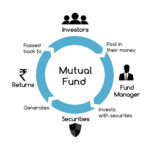Introduction
The foreign exchange market (Forex) is a major financial hub. There are a wide variety of players in this market, from central banks and commercial firms to retail Forex brokers and individual investors. You can make a lot of money trading Forex. However, there is greater danger and volatility when dealing in Forex.
Currency pairings are used across the Foreign Exchange market. On the foreign exchange market (Forex), currency pairs consist of two different national currencies. It is possible to trade between minor, major, and exotic currency pairs. The US dollar is always included in major currency pairs because it is the most traded currency in the world. The U.S. dollar is not included in minor currency or cross-currency pairs. However, among them is one of the world’s three most important currencies. One of the eight major currencies is paired with a currency from a country with a developing economy to form an exotic currency pair.
This article will teach you the basics of Forex trading so that you may enter the market with confidence.
Types of Forex trading
Here’s a list of the four types of Forex trading:
1. Position trading
In position trading, you anticipate the long-term direction of prices. This trading strategy is designed to take full advantage of the opportunities presented by large market movements. As a result, transactions may take place over a period of months or even years. Weekly and monthly price charts can be used for analysis in this form of Forex trading. To determine your entry and exit points, you can utilize either fundamental analysis or technical indications, or a combination of the two.
Unlike other trading systems, position trading doesn’t require constant attention to your positions or concentration on little price movements. You can check in on the positions every once in a while to spot any noteworthy shifts.
2. Scalping
Scalping, in contrast to position trading, is the shortest kind of trading. You can make rapid trades and achieve modest returns by holding positions for only seconds or minutes at a time. Foreign exchange trading that takes advantage of daily price fluctuations of a few cents or so.
For scalping to be successful, the market conditions must be fluid, with narrow spreads. Therefore, you should only worry about the big currency pairs. This is due to the higher liquidity and greater trading volume associated with key currency pairs. Additionally, due to larger trading volumes, scalping is more successful when executed during the busiest time of the trading day. In order to be successful in scalping, as opposed to position trading, you need to devote a significant amount of time and energy to studying charts.
DeckUp Hermes Engineered Wood Study & Computer Table and Office Desk
DeckUp Athena Engineered Wood Study & Computer Table and Office Desk
3. Day trading
Day trading on the Forex market entails opening and closing positions on the same trading day. You may choose this strategy if you are uneasy with scalp trading and desire to avoid large overnight price fluctuations. In day trading, positions can be held for minutes or hours to generate modest profits.
Throughout the day, frequent monitoring of the positions is required. Positions can be closed with a profit or a loss at the end of the trading day. In order to recognize Forex market conditions and trends, technical and fundamental analysis are indispensable in day trading.
4. Swing trading
Swing trading entails holding positions for a few days to several weeks. Since positions are held for longer, it is not necessary to continuously monitor the charts throughout the day. Trend trading, momentum and breakout trading, and counter-trend trading are examples of common swing trading strategies.
If you are unable to monitor Forex charts throughout the day due to other obligations, you should consider swing trading.
| Type of Forex trading | Period of trade |
| Position trading | Weeks, months or even years |
| Scalping | Seconds or minutes |
| Day trading | Maximum one day |
| Swing trading | Several days and sometimes a few weeks |
Also read :- Jyoti CNC Automation files papers for Rs 1,000-crore IPO
Conclusion
The foreign exchange market is profitable for individuals and institutions. It is highly liquid, enabling fast entry and exit from trades. Additionally, you can start with modest investments and grow to larger positions. However, the Forex market is highly volatile, with frequent fluctuations in exchange rates and prices. To make informed decisions, it is essential to identify the potential risks of international trade. You may accrue losses if you lack knowledge or trade impulsively. To evaluate market conditions, you must therefore possess a solid understanding of fundamental and technical analysis.







